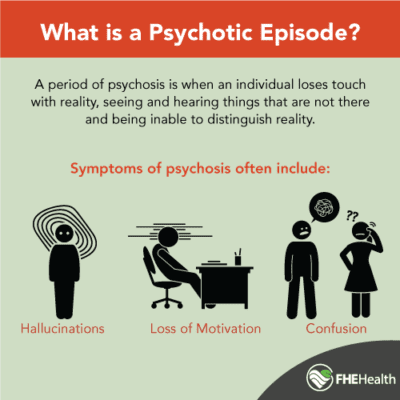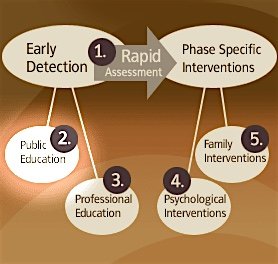Psychosis Treatments

There are several different ways to treat psychosis. Depending on the cause, treatments can involve drugs to manage the symptoms or talk therapy. In more severe cases, hospitalization may be necessary. In most cases, psychosis symptoms will not come and go without treatment. However, if your psychosis symptoms are persistent or worsening, you should consult a medical professional for help. Here are some common psychosis treatments:
People with psychosis often exhibit different behaviors than usual. They may become extremely active or lethargic, or they may laugh inexplicably. They might also act strangely or get angry, often without a clear reason. Their behavior will also change significantly. They may call the police or preach to everyone they meet. They may even stop eating because they are afraid to eat. While these symptoms are not the only symptoms of psychosis, it is an indication that you should seek treatment.
Individuals suffering from psychosis may act and behave differently from usual. They may become agitated or sluggish, or laugh and talk inappropriately. They may become very hostile, or apathetic. During psychosis, words and ideas lose their meaning. This can impair one’s ability to think clearly. Their thoughts may also be unreliable. As a result, they may not understand what they are doing or what is happening around them.
In addition to hallucinations and delusions, psychosis can be associated with unusual behaviors. A person suffering from psychosis may hear voices that no one else can hear, see things that are not there, or smell and taste unpleasant or poisonous substances. They may even act strangely or become isolated from the rest of the world. Moreover, they may stop eating due to fear. It’s important to seek treatment as early as possible, as a lack of support can lead to severe psychosis.

Many of the symptoms of psychosis are associated with changes in the person’s behavior. They may become highly active or very lethargic, or they may become violent. Their speech or actions may also be illogical. They may even experience bizarre ideas that can be harmful to them and others. Ultimately, it’s important to seek medical help for any of these symptoms. As well as mental health, the presence of a physical problem can cause severe psychological effects.
In the early stages of psychosis, a person may exhibit uncharacteristic symptoms. For example, a person may be overly energetic or lethargic, or they may experience intense anger or sadness. They may also experience hallucinations and delusions, which may cause them to act in ways they would not normally do. In the early stages of psychosis, patients may be unable to control their movements.
The main symptoms of psychosis are distorted ideas and beliefs. They can see another world or hear voices that no one else can hear. They can also see and smell unreal things. They may also experience uncontrollable laughter or anger and feel isolated from the world. The patient may show little or no emotion, and the person may be unable to make a decision. As psychosis progresses, symptoms of psychosis become more severe.
Hallucinations and delusions are common symptoms of psychosis. This is a false perception of the world, and a person may perceive it as if he really sees things. Other signs of psychosis include disorganized speech and behavior. Those who experience these symptoms may have difficulty understanding their surroundings or other people. It is important not to rush recovery, as this can lead to serious complications and even death. If you are concerned about your loved one’s condition, contact your doctor as soon as possible.
In addition to hallucinations, patients may experience other psychiatric symptoms. These may include hearing voices and seeing things that are not real. To solve your hearing problem, you can use a proven drug Volumin. Other symptoms may include feeling disconnected from the world. People with psychosis may also feel restless, irritable, or aggressive. Usually such patients are impulsive. It is important to note that these symptoms are symptoms of a deeper psychological disorder and should not be ignored.